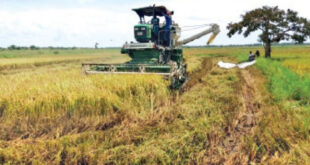 Maximus Jayantha Anandappa (MJA) has marshalled compelling inferential evidence which leaves little doubt that Sunil Santha (SS) was the Creator of "Hela Sangeethaya" or genuine Sinhala Music (The Island 1st June). Sunil Santha’s senior contemporary Ananda Samarakoon (AS) might be regarded as the forerunner of the "Hela" musical tradition, but the flavor of his music was more Bengali than "Hela". Pandit Amaradeva’s considered view was, and is, that North Indian Ragadari Music must be the cast-iron foundation of modern Sinhala Music. Predictably, therefore, the flavor of his music is more North Indian Ragadari than "Hela" and given its theoretical foundation, the music that Pandit Amaradeva created necessarily has to be a sub-variety of North Indian Ragadari Music. In fact, Prof. Ediriweera Sarathchandra once declared that Amaradeva’s best music has been composed for his plays, in the Ragadari tradition. It is true that geographically Sri Lanka is an Indian isle, but for Sunil Santa that did not mean Sinhala Music had to be a variety of North Indian Ragadari Music. In the event, SS’s senior contemporary AS nor his junior contemporary Pandit Amaradeva created a music that was distinctly and recognizably Sinhala or Hela. The conclusion is, therefore, inescapable: of the three acknowledged founders of modern Sinhala music, SS was the one who created a genuinely Sinhala Music.
Maximus Jayantha Anandappa (MJA) has marshalled compelling inferential evidence which leaves little doubt that Sunil Santha (SS) was the Creator of "Hela Sangeethaya" or genuine Sinhala Music (The Island 1st June). Sunil Santha’s senior contemporary Ananda Samarakoon (AS) might be regarded as the forerunner of the "Hela" musical tradition, but the flavor of his music was more Bengali than "Hela". Pandit Amaradeva’s considered view was, and is, that North Indian Ragadari Music must be the cast-iron foundation of modern Sinhala Music. Predictably, therefore, the flavor of his music is more North Indian Ragadari than "Hela" and given its theoretical foundation, the music that Pandit Amaradeva created necessarily has to be a sub-variety of North Indian Ragadari Music. In fact, Prof. Ediriweera Sarathchandra once declared that Amaradeva’s best music has been composed for his plays, in the Ragadari tradition. It is true that geographically Sri Lanka is an Indian isle, but for Sunil Santa that did not mean Sinhala Music had to be a variety of North Indian Ragadari Music. In the event, SS’s senior contemporary AS nor his junior contemporary Pandit Amaradeva created a music that was distinctly and recognizably Sinhala or Hela. The conclusion is, therefore, inescapable: of the three acknowledged founders of modern Sinhala music, SS was the one who created a genuinely Sinhala Music.
Priority Claims
I must confess that as one to whom music has only been an avocation, my attitude to it has been unashamedly "consumerist". That is to say, I was mainly concerned with the enjoyment of music. For me, music was something to be listened to and enjoy, rather than something to be researched and talked about. Therefore, such things as the historical aspects of our musical tradition and priority claims did not command my detailed critical attention. I will concede, however, that crass consumerism is not the noblest philosophy to live by and that MJA’s approach to SS’s music is nobler than mine. Evidently he is critically interested in all aspects of SS’s music. This is as it should be in the interests of fairness and justice, if nothing else. Priority claims are important and should be respected. What comes to my mind in this context is the notorious controversy about priority concerning the invention of the calculus. Here is what Bertrand Russell says about it in his History of Western Philosophy: "In 1675 – 76 Leibniz invented the infinitesimal calculus in ignorance of Newton’s previous but unpublished work on the same subject. Leibniz’s work was first published in 1684, Newton’s in 1687. The consequent dispute as to priority was unfortunate and discreditable to all parties". Note carefully that Newton and Leibniz both discovered the calculus independently. Although Newton discovered it before Leibniz, Leibniz published his results earlier than Newton. The striking similarity of this case, to the matter we are currently discussing will not pass unnoticed.
Discovery or Creation?
Broadly speaking, it is true to say that in science and mathematics, we have "discoveries" rather than "creations". In other words, in science and mathematics there are "truths" out there waiting to be discovered. If one scientist in a given field does not discover a particular truth another will do so sooner or later. The classic example is the theory of organic evolution which was independently discovered by Charles Darwin (1809 – 1882) working in England and Alfred Russel Wallace (1823 – 1913) working in Malaya. On the other hand, there can be no such thing as "Hamlet, Prince of Denmark" waiting to be written by one playwright or another. If Shakespeare did not write it, nobody else would have done so, and if the last copy of Hamlet is burnt Hamlet will be lost forever. As it is in drama, so it is in music when it comes to major compositions. However, in the field of song (which typically occupies a few minutes) a short musical phrase could occur spontaneously and quite independently in the work of two composers. As MJA has painstakingly demonstrated in his well-researched article published in The Island of 31 May, 2016, this is what seems to have happened with the identical nature of the line "piliganumena apa…" in AS’s Namo Namo Matha and SS’s "olu nelala mala gotala …".
Conclusion
During these friendly exchanges on the subject we discussed, at least eight separate items of evidence surfaced which establish beyond reasonable doubt that Sunil Santha’s "olu pipila" was created in 1945 or earlier and recorded in 1946 or earlier. Accordingly, to set the historical record straight, Nuwan Nayanajith Kumara’s statement at page 53 of his definitive work on Amaradeva that as the first "radio song" "olu pipila" was first recorded in 1948 must be corrected to "1946 or earlier" in the next edition.
Post Disclaimer | Support Us
Support Us
The sailanmuslim.com web site entirely supported by individual donors and well wishers. If you regularly visit this site and wish to show your appreciation, or if you wish to see further development of sailanmuslim.com, please donate us
IMPORTANT : All content hosted on sailanmuslim.com is solely for non-commercial purposes and with the permission of original copyright holders. Any other use of the hosted content, such as for financial gain, requires express approval from the copyright owners.
 Sri lanka Muslims Web Portal Sri Lanka Muslims News Center
Sri lanka Muslims Web Portal Sri Lanka Muslims News Center
 Donate
Donate


